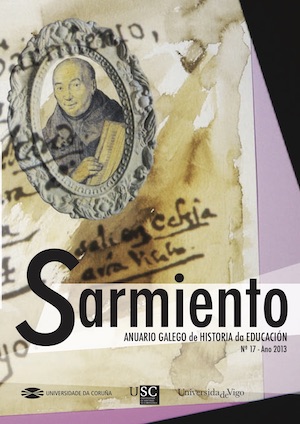From the idea that “to govern is to populate” to “to educate is to argentinize” Migrants and Education in Argentina at the Turn of the Century
Main Article Content
Abstract
The population that formed Argentina at the turn of the century was a barrage of cultures, languages and ideological influences which the political structure of the new State aimed to standardize and consolidate under a sense of identity, which was inevitably and necessarily developed in the schools. This article takes a close look at the trends of the different immigrant groups to preserve their characteristics and identities in their countries of destination by means of both their own educational experiences and State strategies to create legislation geared towards building a sense of belonging, fundamental to the education of new citizens in the new post-colonial political era. From both sides of the same situation, schools played a key role.







